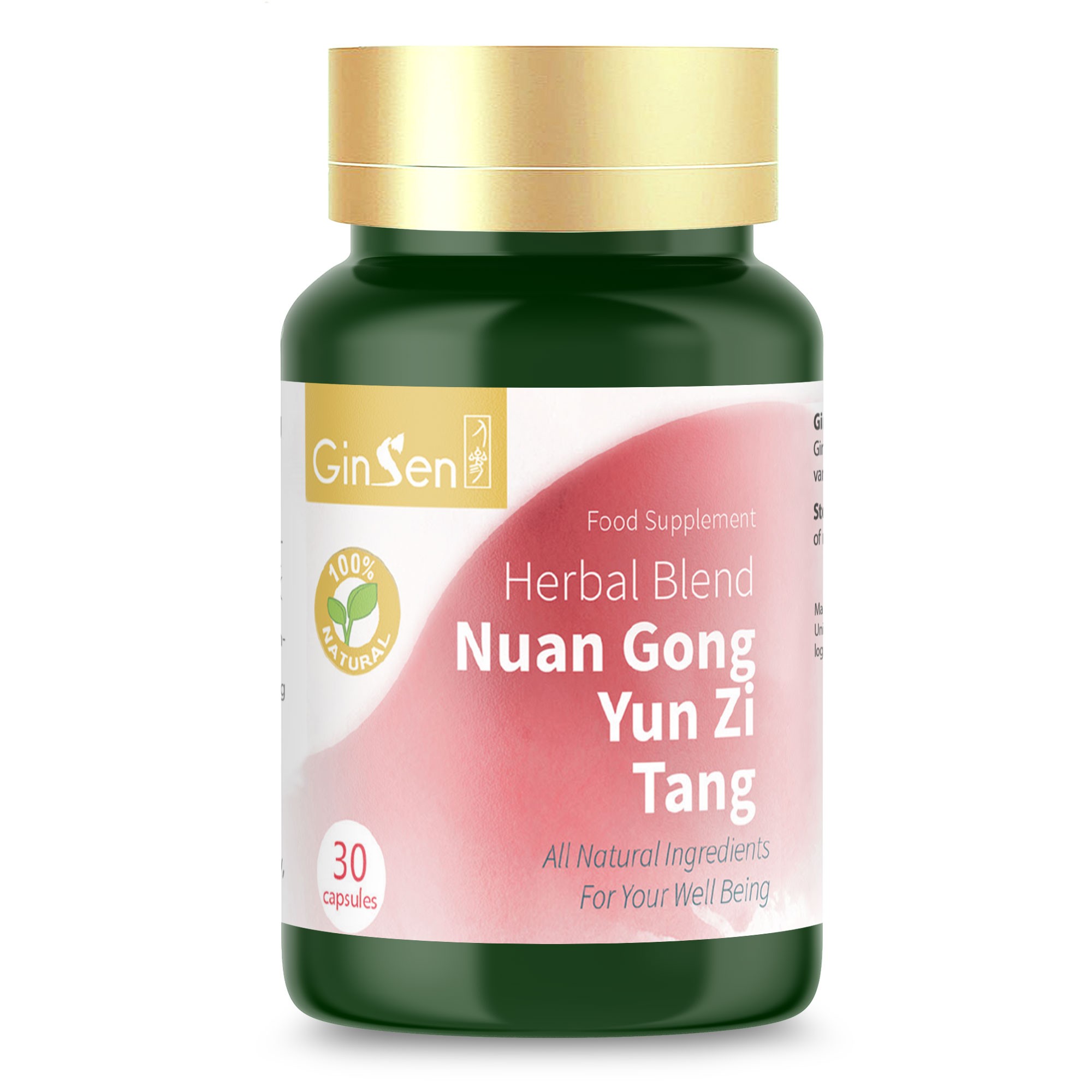
Cold Uterus? How To Keep Uterus Warm For Implantation With Chinese Medicine
The uterus plays a very large role in the ability to conceive. From the shape of the uterus to certain congenital uterus defects, they all can play a role in fertility. However, body temperature plays a major role in causing infertility. In Chinese Medicine cold uterus or cold womb is a very common phenomenon.
According to Chinese Medicine, fertility is decided not just by the number of sperm or the release of an egg but also the warming energy is known as Yang. The newly fertilized egg needs a warm, nurturing environment to implant, grow, and thrive.
New Uterus New You
For couples who have difficulty conceiving – particularly those undergoing IVF – it’s often not the sperm or egg which is the problem; it can also be the uterus. A “warm uterus” is essential for implantation and nurturing the newly formed life. So, what things should you do or avoid before and after implantation to increase the chances of a successful pregnancy? Learn how to keep the uterus warm for implantation below.
Why Is It Important to Keep the Uterus Warm for Implantation
Maintaining warm uterus or warm womb environment within the uterus is considered crucial for successful implantation during the early stages of pregnancy. The concept of “cold uterus” can result in poor circulation in the uterus, leading to inadequate nourishment of the uterine lining.
This can potentially result in a thin uterine lining, which may be less receptive to embryo implantation during fertility treatments such as IVF or natural conception. Thin uterine lining can be a concern for women trying to conceive as it may reduce the chances of a successful pregnancy.
Similarly, In Traditional Chinese Medicine (TCM), the body temperature is vital for successful conception. A warming energy is known as Yang, and a cooling energy is known as Ying. A cold uterus is, therefore, a Yang Deficiency. As the scales become unbalanced, the warm womb cools, preventing your ability to conceive.
4 factors can contribute and cause cold uterus:
1. Poor Blood Circulation: Warmth is associated with improved blood circulation. Insufficient blood circulation to the pelvic region can contribute to a perception of coldness in the uterus. Adequate blood flow to the uterus is vital for nourishing the endometrial lining, which thickens in preparation for implantation. Enhanced blood flow ensures that the uterus is adequately supplied with oxygen and nutrients, creating a favorable environment for the embryo to implant increasing the chances of conceiving.
A 2010 study of 61 patients with a thin endometrium found that increased endometrial blood flow led to significant endometrial thickening. Just as minimizing the blood flow cools the uterus, the reverse leads to a warm womb.
2. Low Progesterone Levels: Progesterone is a principal reason behind a cold or warm uterus. In the second half of the menstrual cycle (the luteal phase), progesterone gradually rises, increasing uterine blood flow, thickening the endometrium, and raising the overall body base temperature – all prerequisites for healthy implantation and pregnancy. If progesterone levels are low, however, the uterine wall will not fully develop.
One study in 79 women found an association between receptive endometria and progesterone levels, confirming that adequate progesterone levels are critical for uterine fertility.
Related: Low Progesterone and Infertility? Chinese Medicine Could Help Luteal Phase Defect and Fertility
3. Exposure to Cold Environments: Prolonged exposure to cold temperatures, especially in the abdominal area, is believed to impact the flow of Qi and blood in the uterus. This exposure may create a condition of “cold stagnation” that is considered unfavourable for reproductive health.
4. Emotional Factors: Stress, anxiety, and emotional imbalances are considered significant contributors to the stagnation of Qi and blood in TCM. Emotional well-being is closely tied to reproductive health, and chronic stress is believed to create conditions that may lead to a cold uterus.
Cold Uterus could also increase the changes of miscarriage. Poor circulation with or without low progesterone levels could also be an underlying cause behind miscarriage. Unstable implantation of the fertilized egg and insufficient blood flow could combine to lead to a cold uterus and poor outcomes. Moreover, as TCM practitioners suggest, a cold uterus could also increase the risk of uterine inflammation, further exacerbating the situation.

In Traditional Chinese Medicine (TCM), Kidney Yang represents the body’s internal warmth and fire. A significant Yang Deficiency prevents a warm womb environment pivotal for the success of new life.
A Kidney Yang Deficiency can occur due to:
- Chronic disease
- Excessive sexual activity
- Physical overexertion
- High intake of cold or raw foods
- Exposure to damp or cold environments
In addition, practitioners often observe Kidney Blood and Jing in women who experience miscarriage. Usually, the Kidney Blood and Jing bring essential nutrients for the embryo’s growth.
So, how do you identify a cold uterus or Kidney Yang Deficiency?
Look for these signs and symptoms:
- Cold hands or feet (poor circulation)
- Feeling cold or shivering
- Reduce or absent libido
- Fatigue or tiredness
- Increased urination frequency
- Low basal body temperature (especially during the luteal phase of the menstrual cycle)
Other potential symptoms include a pale tongue or white coating, poor concentration, irregular menstruation, painful periods, and fluid swelling (edema). When the Kidney-Yang is low, the body lacks the energy to support the other organs as it usually stimulates the Qi movement and blood generation.

Kidney Yang is essential for Warm Uterus
How to Keep Uterus Warm for Implantation
1. Try Moxibustion for Warm Uterus
Moxibustion is a time tested Chinese technique involving burning mugwort (Artemisia argyi) on a particular point of the body. The technique is administered to eliminate cold and strengthen uterine blood flow.
In a Cochrane systematic review (the highest standard of scientific evidence), moxibustion was found to improve pregnancy outcomes, reducing the presentation of a baby in the breech position and the need for oxytocin before and during labor.
Another study of 30 patients noted that moxibustion “remarkably improves the uterine microcirculation” in patients with primary dysmenorrhea.
2. Keep Feet Warm
Because a Kidney Yang Deficiency cools the peripheries due to insufficient circulation, keeping the feet warm can offset the deficiency. The association between cold feet and a cold uterus has long been held in Chinese Medicine. Indeed, keeping the feet warm improves the body’s circulation, helping blood flow through the uterus – the uterus and feet share the same veins returning blood to the heart. Wearing thick socks or using a warm foot bath is sufficient to make a difference.
3. Add Uterus Warming Supplements
Add traditional supplements such as Nuan Gong Yun Zi Tang
Nuan Gong Yun Zi Tang
Nuan Gong Yun Zi Tang (Nuan Gong Yun Zi Wan) by GinSen are herbal supplements for cold uterus. Expertly formulated to warm the uterus, improve uterus lining, restore ovulation, improving overall fertility.

4. Eat a Healthy, Balanced Diet
Diet, as always, is fundamental to Chinese Medicine. You should eat foods that generate heat and stimulate circulation and avoid foods that do the opposite. That means cutting out the frozen berries, cold sushi, cold beverages, and tubs of ice cream.
Instead, opt for a diet rich in warm, cooked food. Include ingredients like dairy, seafood and meat alongside spices such as white pepper, ginger, garlic and walnuts – known for their warming properties. Also, ensure you drink a warm beverage (think ginger tea or hot water with lemon) throughout the day.
If you are unsure where to start on your fertility journey? Speak to our fertility experts who have over 30 years of experience under their belt. Free Online Consultation Here.

For more information about how Chinese Medicine can help to keep uterus warm for implantation, book your free consultation with our Chinese Medicine experts today
* These statements have not been evaluated by the Food and Drug Administration. This information is not intended to diagnose, treat, cure, or prevent any disease. We can’t guarantee the treatment result, as the symptoms of conditions are unpredictable and vary greatly from person to person. The treatment length and recovery time also varies for individual. Please visit our clinics website: GinSen where a specialists will discuss your care and provide a consultation, and the treatment will be designed to meet your individual needs.









